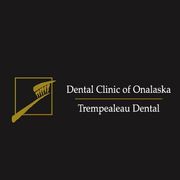How Does Smoking Cigarettes Affect Your Oral Health?

The insidious effects of smoking are often overlooked. Many people recognize the connection between smoking and lung cancer, but they don’t fully appreciate the immediate impact cigarettes can have on their health. Tobacco isn’t just a long-term risk. To understand the impact smoking has on your health, start by talking with your dentist.
How Does Smoking Affect Your Teeth & Gums?
The first symptoms your dentist will notice are discolored teeth and bad breath. With continued use, you might also see leukoplakia, which are white or gray patches that can appear on the tongue, cheeks, and palate. Leukoplakia manifests over time with chronic tissue irritation; while mostly painless, affected areas can become stiff, sensitive, and in rare cases, even fuzzy and thrush-like.
Tobacco exposure will also cause inflammation around your salivary glands, which will make your mouth feel dry, sticky, and uncomfortable. Reduced blood circulation to your gums will increase your risk of gingivitis and periodontal disease. Eventually, your gums will recede, and you’ll lose bone density in your jaw, making it more likely for your teeth to loosen or fall out.
The most serious side effect of smoking is cancer. According to some studies, people who smoke and drink alcohol heavily are about 100 times more likely to develop oral or throat cancer than the general population.
How Can You Quit Smoking?
It’s no secret that tobacco products can be deadly. But did you know the number of tobacco-related deaths in the U.S. far outnumbers the combined fatality for illegal drugs, alcohol abuse, homicide, and car accidents? Many researchers believe people don’t even understand all the risks associated with smoking because of tobacco lobbying and limited case studies.
 If you smoke or chew tobacco, now is the best time to quit. Start by cutting back tobacco usage every day. Talk to your doctor about using nicotine gum, patches, or other medications to help control cravings, or quit smoking cold turkey if you’re up to the challenge.
If you smoke or chew tobacco, now is the best time to quit. Start by cutting back tobacco usage every day. Talk to your doctor about using nicotine gum, patches, or other medications to help control cravings, or quit smoking cold turkey if you’re up to the challenge.
Some people also find it useful to enroll in counseling or group therapy; Nicotine Anonymous and the American Cancer Society both provide local support groups. Additionally, the National Cancer Institute offers a free mobile app to help you track your progress and stay motivated.
Talk to your doctor for more information on the resources that are available in your area, and see your dentist at least once every six months if you smoke or have recently quit.
If you’re trying to quit smoking, get support from the compassionate and caring professionals at Dental Clinic of Onalaska. Located in La Crosse County, WI, this clinic provides teeth cleaning, whitening procedures, extractions, X-rays, and general dentistry services. Your dentist is also the first line of defense for oral cancer screening and will conduct a thorough exam during every annual visit. To make an appointment with a dentist, call (608) 783-3341 today, or visit the clinic online to learn more about becoming a new patient. You don’t need to quit smoking alone—Dr. Mike Olsen has been helping patients since 1993 to protect their teeth and oral health.
About the Business
Have a question? Ask the experts!
Send your question

